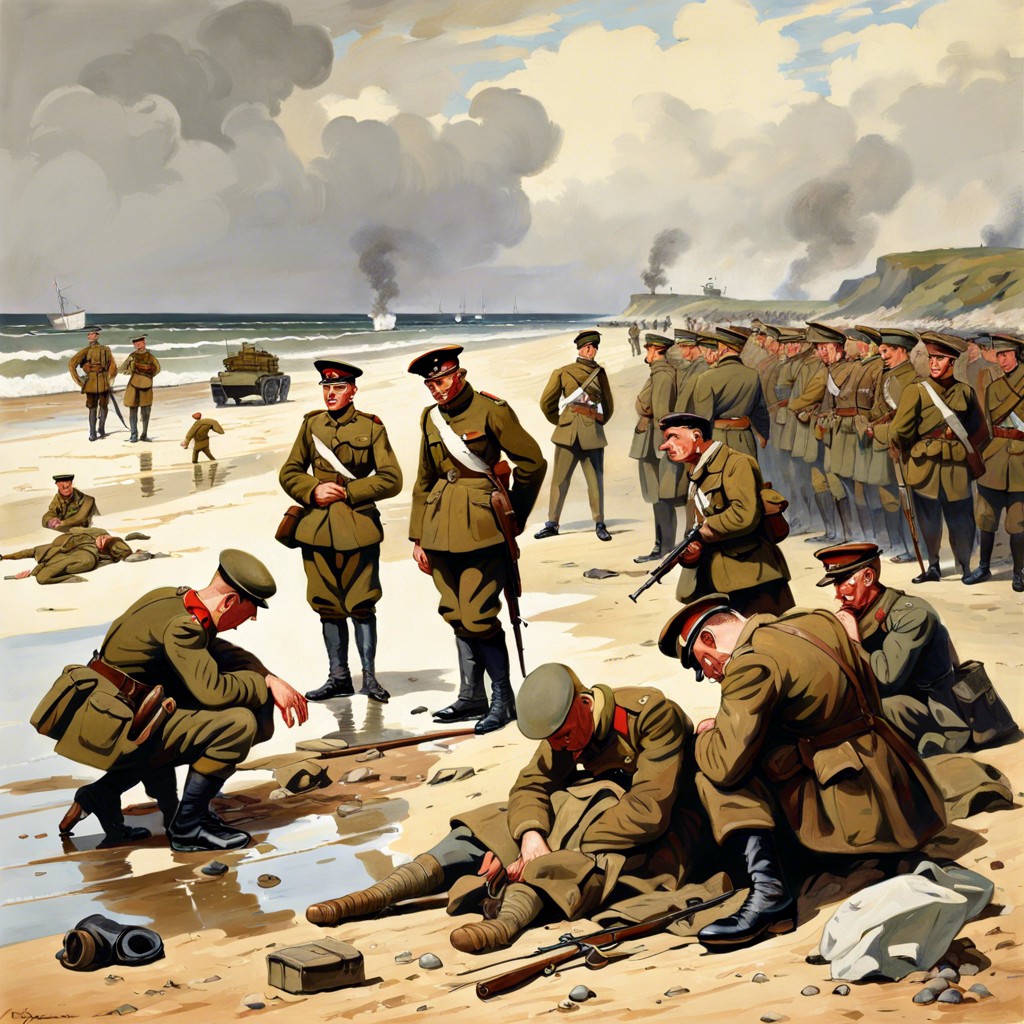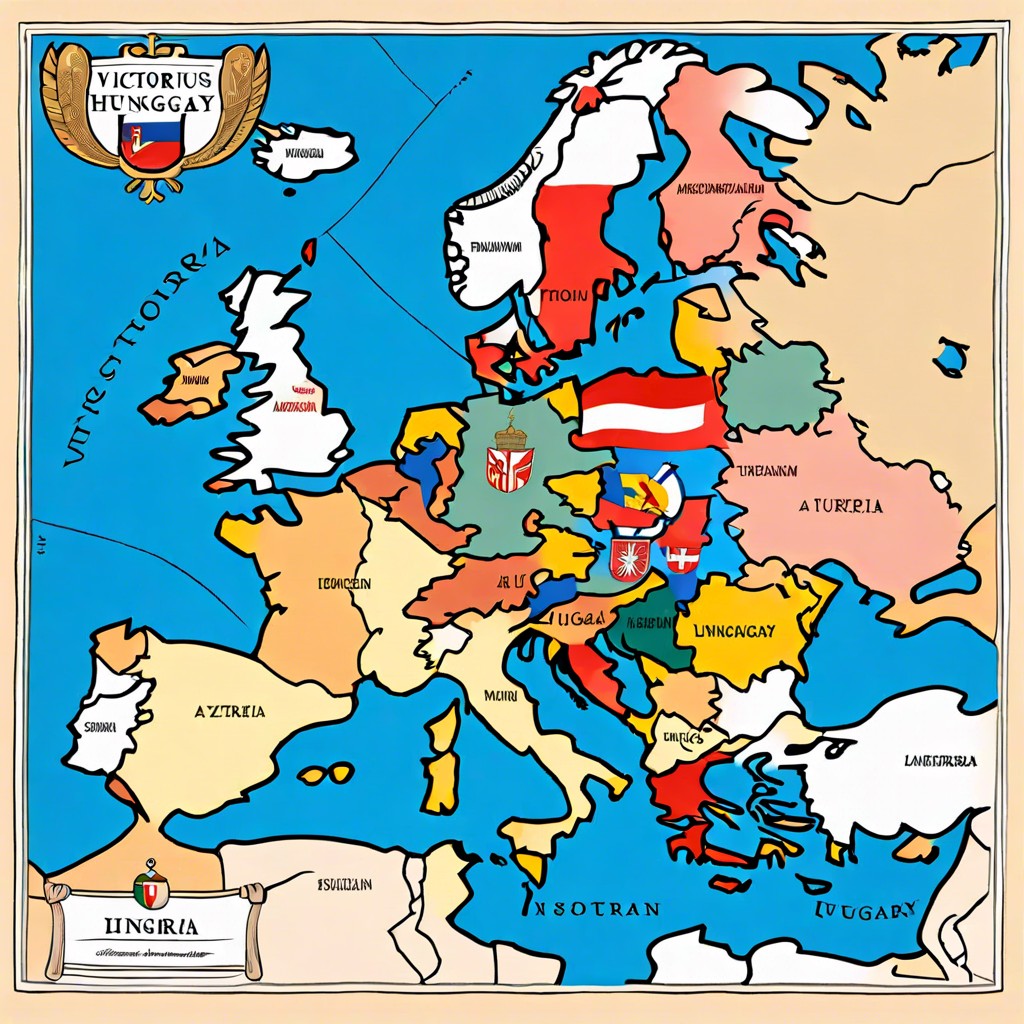Discover what the world might look like today if Europe had never colonized America, including impacts on culture, technology, and global power dynamics.
Ever wondered how jam-packed our historical buffet table would have been without Europe’s colonial ventures? Imagine Indigenous civilizations flourishing unchecked, global trade looking like an alternative rock playlist, and geopolitical powers twirling in an entirely different dance. Join me as we jet-set through this mesmerizing “what if” scenario, touching upon everything from untamed ecosystems to a mind-bending cultural and technological remix. Buckle up—this is history, reimagined!
Key takeaways:
- Indigenous civilizations would flourish without European interference.
- Trade networks would expand and diversify significantly.
- Asian and African empires would gain more global influence.
- Ecological balance would improve, fostering biodiversity.
- Cultural exchanges and technologies would develop independently.
Indigenous Civilizations’ Development

Think about this: no European interference, no drastic cultural erasure.
1. Flourishing Empires: The Aztecs, Mayans, and Incas would likely continue to thrive, advancing their architectural marvels, astronomical knowledge, and complex societal structures. Expect more pyramids than Vegas could dream of.
2. Native Trade Networks: Indigenous trade routes, already expansive, would grow even more robust. Imagine an intricate network of goods, ideas, and innovations crisscrossing the continents like an ancient Amazon Prime, minus the drones.
3. Diverse Languages and Cultures: Hundreds of indigenous languages and cultures might flourish undisturbed. The tapestry of human expression would be vivid, rich, and far more complex, like a never-ending episode of “Where in the World is Carmen Sandiego?”
4. Technological Evolution: Without European colonization, indigenous technologies—such as agricultural techniques, navigation, and medicine—would evolve uniquely. Picture corn that grows like skyscrapers and medicinal gardens that would make any pharmacy blush.
Global Trade Dynamics
It’s fascinating to imagine global trade without the Columbian Exchange zipping goods across the Atlantic. The thriving trade routes of Asia, Africa, and the Middle East would’ve continued to dominate. Perhaps the Silk Road would remain the Beyoncé of trade highways.
Consider the appetite for spices in Europe. Instead of hunting for them in the Americas, trade with Asia would skyrocket, making pepper and cinnamon the Bitcoin of their day. Talk about a hot commodity!
Gold-hungry Europeans might pivot to Africa. This could mean African empires rising like rock stars, becoming powerhouses of wealth and culture. Timbuktu would be the Paris of African trade rendezvous.
And let’s not forget foods! European diets sans potatoes, corn, and tomatoes? Not exactly bland, but certainly missing their future MVPs. Picture Italy without tomatoes. Pasta feeling like a backup dancer without the main act.
We’d also see different maritime routes blossoming. Mediterranean and Indian Ocean trade could rule the waves, creating fantastical markets where you could bump into spices, silk, and maybe even that rare unicorn—spicier than a weekend in Ibiza!
Geopolitical Power Shifts
Without Europe extending its colonial grip across the Atlantic, political maps would look wild. Imagine a segmented Europe, still bickering over borders while attempting to grow their economies. The powerhouses like Spain, France, and England wouldn’t strut with chests puffed up on global dominance; instead, they’d likely turn way more inward, inventing new ways to squabble over old grudges.
Meanwhile, Asian giants like the Ming Dynasty of China or the Mughal Empire in India could have turned up their game. Europe distracted? Lovely. Less competition on the high seas means more spice, silk, and tea flowing freely their way.
Africa, without European colonization’s harsh interruption, would see empires such as the Mali or Songhai flexing their muscles, trading gold and knowledge across continents without a second thought to colonial disruption.
Of course, without an American gold rush, there’d be no sudden wealth boost fueling European industrial growth. Saddened? Don’t be. Just think of all those fancy revolutionary machineries delayed while folks stuck to tilling fields a tad longer.
More room for Asia and Africa potentially nudging out Europe. In short, a diversified power cocktail, where no one continent calls all the big shots.
Ecological and Biodiversity Impact
Imagine a world where tomatoes, potatoes, and maize stay put in the Americas. Europe’s dinner tables would have looked very different without these delights. Conversely, horses, cows, and sheep wouldn’t be galloping across American prairies. Fewer BBQs, more maize tortillas.
The Americas’ unique ecosystems might have thrived without invasive species hitching rides on European ships. Think fewer rats, more native birds—basically, a giant win for biodiversity. Meanwhile, in Europe, pests like the Colorado potato beetle might never have become a thing. Fewer beetles, more happy gardeners.
And let’s not forget diseases. Europe and the Americas could have avoided their unfortunate biological tennis match. No smallpox devastating indigenous populations, no syphilis making its debut at European royal courts.
Ecologically speaking, Europe staying put would have meant a less scrambled planet. Good for ecosystems, bad for anyone craving a potato. Sometimes, it’s about balance.
Cultural and Technological Exchange
Imagine a world without cheeseburgers. Terrifying, I know. Without Europe’s tangle with America, culinary wonders like tomatoes would never have crossed the Atlantic. Italian cuisine minus tomatoes? An utter travesty!
Languages would have danced in different directions too, with English, Spanish, and French never taking root across the Americas. Picture Brazil without Portuguese – mind-bending!
Technological quirks would abound. Indigenous innovations like sophisticated agricultural techniques might have shaped unique paths and spurred diverse technological ecosystems. Conversely, European gadgets and gizmos—guns, germs, and steel among them—wouldn’t have wreaked their transformative havoc.
Music, art, and literature would bloom differently, an alternate symphony altogether. There’d be no mariachi-infused melodies, no jazz spontaneously combusting in New Orleans. Cultural mash-ups define so much of what we enjoy today.
Sports fans, don’t even get me started. Soccer might still reign supreme with no need for baseball mitts or basketball sneakers. Though, let’s be honest, the World Cup would still cause global mayhem.
In this alternate history, the cultural and tech symphony would be a wholly different masterpiece.




